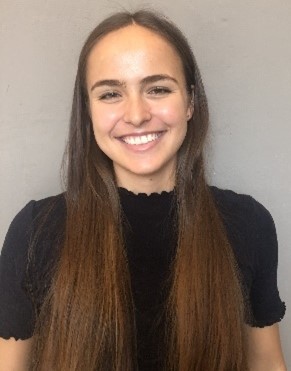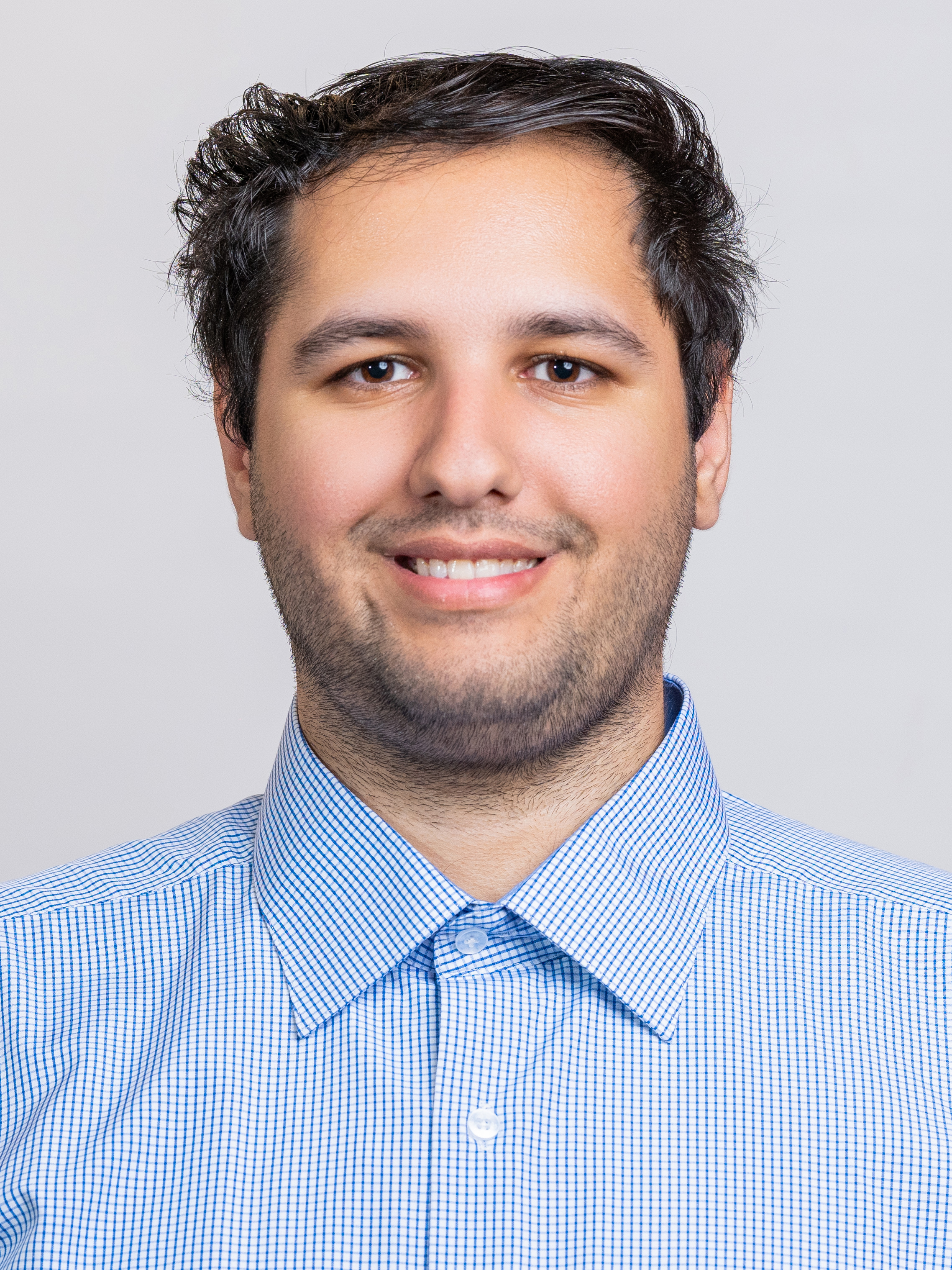The micro-programme Civic Engagement is intended to enable you, as a bachelor or master student, to actively contribute to civil society by applying theoretical content (learning) to a real social need (service). As a result, you will learn to assume responsibility, gain practical experience, and grow personally.
Promoting civic engagement throughout academia, is a key pillar of CIVIS's goals. Courses covering both a broad and a targeted spectrum on Civic Engagement are offered by the University of Bucharest, the Universidad Autónoma de Madrid, National and Kapodistrian University Athens, and the University of Tübingen.
Students' testimonies

I had the opportunity to […] attend this transdisciplinary CIVIS programme, getting together with other peers from universities (across Europe) such as Madrid and Bucharest. I learnt about a field I had already been and still continue to be involved in, namely volunteering and civic engagement.
(Christos Kaitatzis, National and Kapodistrian University of Athens, Greece)

To me, meeting and working with new people from different fields of studies and therefore probably different perspectives, was a main goal.
(Johanna Grad, University of Tübingen, Germany)
 "In addition to the information masterfully provided by the Riparian Zones: waste areas or assets for biodiversity and human well-being? course teachers, we were also able to do practical and useful exercises. Having a background in hydrology, I was able to create links between the spatial and the environmental component."
"In addition to the information masterfully provided by the Riparian Zones: waste areas or assets for biodiversity and human well-being? course teachers, we were also able to do practical and useful exercises. Having a background in hydrology, I was able to create links between the spatial and the environmental component."
(Costache Mihnea-Ștefan, University of Bucharest)
The CIVIS micro-programme Civic Engagement consists of three compulsory units:
| Unit 1: |
Civic Engagement in Europe: A Transdisciplinary Approach |
| Unit 2: |
Societal challenges |
| Unit 3: |
Record of civic engagement |
Unit 1 | Civic Engagement in Europe: A Transdisciplinary Approach
You complete Unit 1 by attending the joint course “Civic Engagement in Europe: A Transdisciplinary Approach”.
The course is expected to be offered every summer term by the University of Bucharest, the University of Tübingen, the National and Kapodistrian University of Athens and the Universidad Autónoma de Madrid.
At the moment, the course is offered as a CIVIS Blended Intensive Programme (BIP), under the name "Civic Engagement and Football: A Transdisciplinary Approach". You have to apply separately for the it (more information about BIPs are available here).
In this course students and lecturers discuss, based on scientific literature, questions such as: What are the different types of civic engagement? Are there any similarities and differences between the various forms of civic engagement across European countries? What motivates people to volunteer? How can universities empower students to contribute to social justice? How can students participate in activities that promote civic engagement within their subjects? What is the role of civic engagement in modern economies, for example, in the tourism industry?
Student testimonies
This course helped me understand more about our current society and the ways in which we can work to make Europe, and perhaps the whole world, a better place. I got the chance to communicate and network with people from different parts of Europe, learn more about their culture and region, and experienced some great moments during the course.
Daniel-Vasile Rădulescu, University of Bucharest, Romania
“The course ‘Civic Engagement in Europe’ has been one of the best experiences in the past months for me. Not only have I learned many ways in which I can become a better citizen, but also I have experienced a real intercultural exchange with multiple European students. The physical mobility was the best part of it, because of the connections built between students and also with the professors. I would very much encourage others to enroll in the course.” Sofía Ríos de Juan, Universidad Autónoma de Madrid, Spain
Unit 2 | Societal challenges
In Unit 2, students learn to apply their academic knowledge to concrete societal challenges and define sustainable solutions by promoting their creative and actionable ideas and deliver real progress to societies and planet, according to the SDGs (UN Sustainable Development Goals). With this goal in mind, students can select and attend courses that follow either a service-learning or a challenge-based approach.
Service-learning courses combine academic learning with civic engagement. They always involve partners from the local community, non-governmental or non-profit organisations. Students and lecturers work together with the partner entities and addresses real social problems and needs by applying academic theory and methods into praxis in a community context. For example, you can attend courses like: “Tübingen Erbe Charity Run: Instagram and TikTok Communication”, “Engaging marginalized Communities” and “University-based projects for local sustainable development in European UNESCO global parks”.
Challenge-based courses actively involve students and lecturers in real and relevant problem situations, which implies the definition of a challenge and the implementation of a solution. Therefore, in these courses, academic knowledge is not only acquired but also applied to real and current challenges we face as a society. For example, you can attend courses like: “Data Collection, Analysis and Strategy Planning”, Smart Health: Digital Transformation of Healthcare Systems” and “Eco-friendly technologies”.
Our courses in Unit 2 address fields like,
- social justice, migration, human rights
- citizen science
- social change through marketing and leadership
- civic tourism
- biodiversity and human well-being
Course example
The course “Female Solidarity in Literature and Beyond” explores women’s solidarity within and outside the text. While it gives literary tools to analyze texts that feature solidarity among their female characters, it also allows students to familiarize themselves with the discriminatory realities that female-identified authors face and proposes ways in which they can support said authors and show solidarity towards. Have a look at the results, that were published on a blog: https://www.literatursehen.com/themenseite/like-have-discovered-read-recently/.
Unit 3 | Record of civic engagement
Within this third unit, you will need to get involved in an individual internship or civic engagement activity at a non-profit or a non-governmental organization. You can choose the internship according to your personal interests. For example, you could volunteer as a trainer in a local sport club or become an active member of an association that promotes social justice issues or issues related to environmental topics. You can freely allocate your volunteer time to multiple short-term or a single long-term activity.
Through volunteering…
(...) one acquires - while following one's interests and having fun - competences that cannot be acquired so early in any other place of learning. These competences can contribute to the development of one's own person and bring advantages later, for example in professional life.
Kim Bayer, University of Tübingen
To complete Unit 3, please note that:
- Only volunteering completed during the study phase is eligible for credit.
- You are required to have completed a min. of 140 hours of volunteer service.
- We strongly recommend to participate in the EngagemenTransfer-Workshop (see course catalogue or on the CIVIS platform). Here, you will get the opportunity to reflect on your volunteering experiences, or if you are a newcomer, to get inspiration for volunteering activities
For more information about volunteering opportunities, contact:
General
1) Is there any course fee in the micro-programme Civic Engagement? How much does it cost?
The micro-programme Civic Engagement is completely free of charge. Students do not need to pay any fee to participate in the program.
The joint course "Civic Engagement in Europe: A Transdisciplinary Approach" in Unit 1 at the moment includes a stay abroad, for which funding can be applied through CIVIS.
2) Which universities offer courses in the micro-programme Civic Engagement?
Currently, courses are offered by the four partner universities that coordinate the micro-programme Civic Engagement: Universidad Autónoma de Madrid, University of Bucharest, University of Tübingen, and National and Kapodistrian University of Athens.
3) What is the language of instruction in the micro-programme Civic Engagement?
Generally, the medium of instruction is English. There are some courses that are given in other languages, such as Spanish or Greek. The minimum level for attendance in any of the teaching language is B2. Please, check the language of instruction of courses before applying for any course you would like to enroll.
4) Are the courses in the micro-programme Civic Engagement offered online or face-to-face?
Most courses of the micro-programme Civic Engagement are offered online. Only some courses are face-to-face or blended.
5) Who can apply for the micro-programme Civic Engagement?
The micro-programme Civic Engagement is open to all Bachelor's and Master's students from all disciplines currently enrolled in a CIVIS university.
6) How long does it take to complete the micro-programme Civic Engagement?
It is possible to complete the micro-programme within one academic year. However, since it includes own civic engagement and therefore, requires some flexibility, you will have maximum three years to complete the micro-programme Civic Engagement, counting from the date of your acceptance in the micro-programme, as long as you are still enrolled in a CIVIS university. If you will graduate before this deadline, you should consider the date of your graduation as the deadline to complete the micro-programme Civic Engagement.
Application
1) When can I apply for the micro-programme Civic Engagement?
Application for the micro-programme Civic Engagement is possible once a year, in autumn.
2) Can I apply for the micro-programme Civic Engagement if I am in my first semester?
Yes, you can apply for the micro-programme Civic Engagement at any semester.
3) Can I still apply for the micro-programme Civic Engagement if I am in my final semester?
Yes, you can apply for the micro-programme Civic Engagement when you are in your final semester. The only condition is that you should be able to complete all the courses in the micro-programme before you graduate in your university. Please, consider that the joint course “Civic Engagement in Europe: A Transdisciplinary approach” (Unit 1) is only offered oneonce a year.
4) As a PhD student, can I apply for the micro-programme Civic Engagement?
The programme targets only bachelor’s and master’s students. A PhD student may be considered in a very exceptional circumstance.
5) Which documents do I need when applying for the micro-programme Civic Engagement?
You must prove your student status at a CIVIS university when applying. You will be required to upload a document that clearly shows that you are currently enrolled in one of the CIVIS universities. Please, upload a valid student document like enrollment certificate for the current academic year. Do not submit a picture of your student card, your identity card or acceptance letters. If possible, submit a document issued in English.
6) I am an exchange student. Can I apply for the micro-programme Civic Engagement?
There is a possibility to apply for the micro-programme Civic Engagement if you are an exchange student in one of the 11 CIVIS-universities. But you need to make sure that you can acknowledge the courses as part of your learning agreement in advance. Please make sure to communicate with your Erasmus+ coordinator of your department.
Courses
1) What happens after being accepted into the micro-programme Civic Engagement?
After being accepted, you will gain access to the dedicated space in the CIVIS platform where you will find more information about individual courses in which you can enroll.
2) When is the registration period for the courses in the micro-programme Civic Engagement?
The registration period for the courses varies according to the schedule of the university which offers them. For example, courses offered by the Universidad Autónoma de Madrid begin in September and February, while the courses at the University of Tübingen begin in October and April. As we also offer block seminars or intensive courses, they would have different registration periods.
The application for the joint course (Unit 1), currently offered as a CIVIS Blended Intensive Programme (BIP), will be defined by CIVIS. You have to apply separately for the BIP. Please check the CIVIS website for more information.
This flexibility allows you to find the courses that most suit your schedule. Check the registration period of the courses in the course catalogue or the dedicated space in the CIVIS platform, accessible after being accepted in the micro-programme Civic Engagement.
3) How many courses should I attend to complete the micro-programme Civic Engagement?
The micro-programme Civic Engagement has 3 units and you are able to acknowledge courses for Unit 2. You can choose as many courses as you wish, but we suggest that you choose courses leading to a minimum of 3 ECTS and a maximum of 6 ECTS, which is expected in order to complete the Unit 2 of the micro-programme Civic Engagement.
4) What happens if I am not able to get all the 15 ECTS which qualifies me to for the certificate of the micro-programme Civic Engagement?
For each course you attend and pass, you will receive a certificate of attendance with the equivalent credit points. In case you are unable to earn all 15 ECTS necessary for the certificate, you can still prove that you attended some courses.
5) I would like to finish all my courses within a specific time frame, but the courses are overlapping. What should I do?
If more than 50% of the classes are overlapping, you may not be able to complete them. We advise you to choose other courses with schedules that do not overlap. In cases that only few sessions are overlapping, please, discuss this with your lecturers. Each course has different requirements to pass and give the credit points, and they may find a solution that is most suitable for you.
6) I cannot take part in a course that I have registered for. What should I do?
Please contact the lecturer of the course and the coordinator who is responsible for the university that offers the course.
7) How many sessions does a course in the micro-programme Civic Engagement has?
The number of sessions change from one course to the other. Some courses are block or intensive courses, which means that all sessions take place in only few days. Other courses are spread throughout the semester, according to the schedule of the university where it is offered. There are also summer schools that are linked to the micro-programme Civic Engagement, which you may want to consider. Information about the courses is available in the CIVIS course catalogue or in the dedicated space in the CIVIS platform, accessible after being accepted in the micro-programme Civic Engagement.
8) Are we to write an exam at the end of each course in the micro-programme Civic Engagement?
Each course has different requirements to pass. Assignments and assessment forms will vary. Please, check this information in the course description in the course catalogue.
9) I have done some courses at my university which are CIVIS courses. Can I have them recognized for the micro-programme Civic Engagement?
It depends. If this course is also offered by the micro-programme Civic Engagement – it means, it is listed in the space dedicated to the micro-programme Civic Engagement in the CIVIS platform – the credit points earned in this course can be recognized. We only recognize credit points of courses that are offered by the micro-programme Civic Engagement.
Record of civic engagement
1. How many hours do I need to volunteer in order to complete Unit 3?
You are required to complete a min. of 140 hours of volunteer service. Only volunteering completed during the study phase is eligible for credit.
UAM students that are enrolled in the UAM volunteering programme can recognise the 6 ECTS gained there for the micro-programme.
2. Where can I find more information about volunteering opportunities?
Please see “Content and structure” – Unit 3 Record of civic engagement.
Certificate
1) How do I receive my certificate of the micro-programme Civic Engagement?
We will be able to see in the dedicated space in the CIVIS platform that you already earned the maximum ECTS in Unit 1 and Unit 2. In order to recognize your volunteering activities in Unit 3, a field where you can upload your certificates has been created. Unfortunately, there is not an automatic way to count the ECTS for your volunteering. Please contact us in case you believe you have completed all your volunteering activities so we can verify and proceed with issuing your certificate. You can find us in the contact section. Your certificate will be available on the CIVIS platform.
2) Can I recognize the certificate of the micro-programme Civic Engagement in my home university?
As this depends on national legislations, please, consult your university to know if these credit points can be fully or partially recognized. For the organizing universities, please see Content and structure / ECTS credit recognition.



 "In addition to the information masterfully provided by the Riparian Zones: waste areas or assets for biodiversity and human well-being? course teachers, we were also able to do practical and useful exercises. Having a background in hydrology, I was able to create links between the spatial and the environmental component."
"In addition to the information masterfully provided by the Riparian Zones: waste areas or assets for biodiversity and human well-being? course teachers, we were also able to do practical and useful exercises. Having a background in hydrology, I was able to create links between the spatial and the environmental component."


